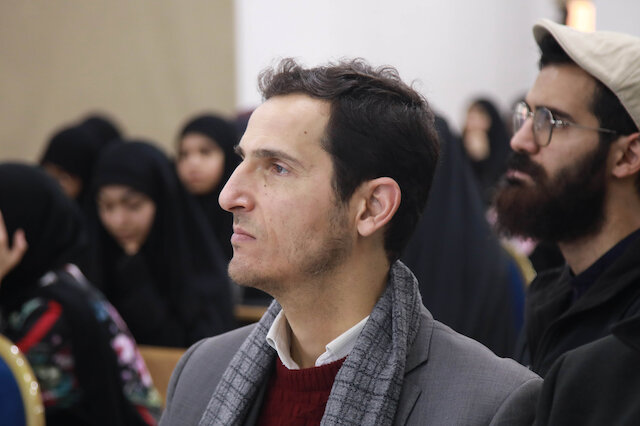The scene will completely change if all pilgrims raise Palestinian flag

Question: Considering that Hajj provides one of the greatest platforms for empathy and unity within the Islamic Ummah, how can this great capacity [Hajj] be used to solve the problems of the Islamic world in the best possible way?
B. Al-Lakkis: In the first place, the opportunity of Hajj can be utilized by emphasizing the principles and commonalities among Muslims, especially since all Muslims without exception agree on the necessity of supporting al-Quds, Gaza and Palestine, and fighting against the Israeli devil. Muslims agree on many cultural, social, moral, and humanitarian issues. All of these are patterns that cannot be seen in any other society. Muslims getting closer to each other and talking to each other is one of the best ways to strengthen unity, because division hurts everyone.
Muslims today are in a strong position and there is a great opportunity ahead of them that they can make use of at the regional and international levels. The peace and security that God wants to prevail among Muslims and among all humanity will be achieved through direct communication between different sections of the Muslim community and relying on their great common religion, Islam. This peace and security will not be achieved by leaning toward the outside [of Islamic societies].
Question: Hajj provides a special opportunity for the declaration of the support of the Islamic Ummah, especially the pilgrims, for the people of Gaza. In your view, what actions can be taken during Hajj to that end?
B. Al-Lakkis: Today, the world is looking to the great Islamic Ummah to know its position regarding the current genocide in Gaza, which wounds the hearts of all freedom-seeking and honorable people in every part of the world. If the people of the world see disunity in the ranks of Muslim pilgrims in Makkah and in Baitullah al-Haram, then they will come to believe that Muslims will ultimately not succeed in strengthening their unity. Therefore, the realization of unity by pilgrims is very important.
Question: If you personally participated in this year’s Hajj, as a Hajj pilgrim, would you have taken any action in support of the Gaza Strip and against the genocide there perpetrated by the US and the Zionist regime?
B. Al-Lakkis: The only call that is expected to be heard from the pilgrims is the call for piety, that is, the call on certain regimes [Arab regimes] to get out of disgrace and humiliation. We should ask those who sold themselves out to these regimes in exchange for a handful of dinars to come to their senses. If today all Muslims shout with one voice “Victory belongs to Palestine and disgrace and humiliation belongs to Israel”, then you will see that Israel will fall due to fear and terror.
Question: What is the position of “bara’at [renunciation] of the enemies of the Islamic world” in Hajj? In other words, how important and necessary is renunciation of the enemies of the Islamic Ummah, especially the United States and the Zionist regime, particularly in this year’s Hajj, which is being held at the same time the genocide of Muslims in the Gaza Strip is unfolding?
B. Al-Lakkis: If all the pilgrims of Baitullah al-Haram raise the flag of Palestine, then the scene will change. Do you know what will happen if two million pilgrims raise the Palestinian flag and wear shrouds? If their governments are preventing them from demonstrations, they can rise up [during the Hajj season] to express their renunciation of Zionism, even if this action ends up killing them. If this happens, these people (Hajj pilgrims) will become martyrs of the path of al-Quds. Such action will guarantee a message to the hypocrites in the Islamic Ummah. Such action will demonstrate Palestinians as the oppressed. I doubt that the ruling family in Saudi Arabia can confront millions of Muslims. Makkah belongs to the Islamic Ummah and Hajj belongs to God. Makkah and Hajj do not belong to a house or a government that can prevent pro-Palestine slogans with its interferences.
(The views expressed in this interview are interviewee’s own and do not necessarily reflect those of Khamenei.ir.)
| © | KHAMENEI.IR |


